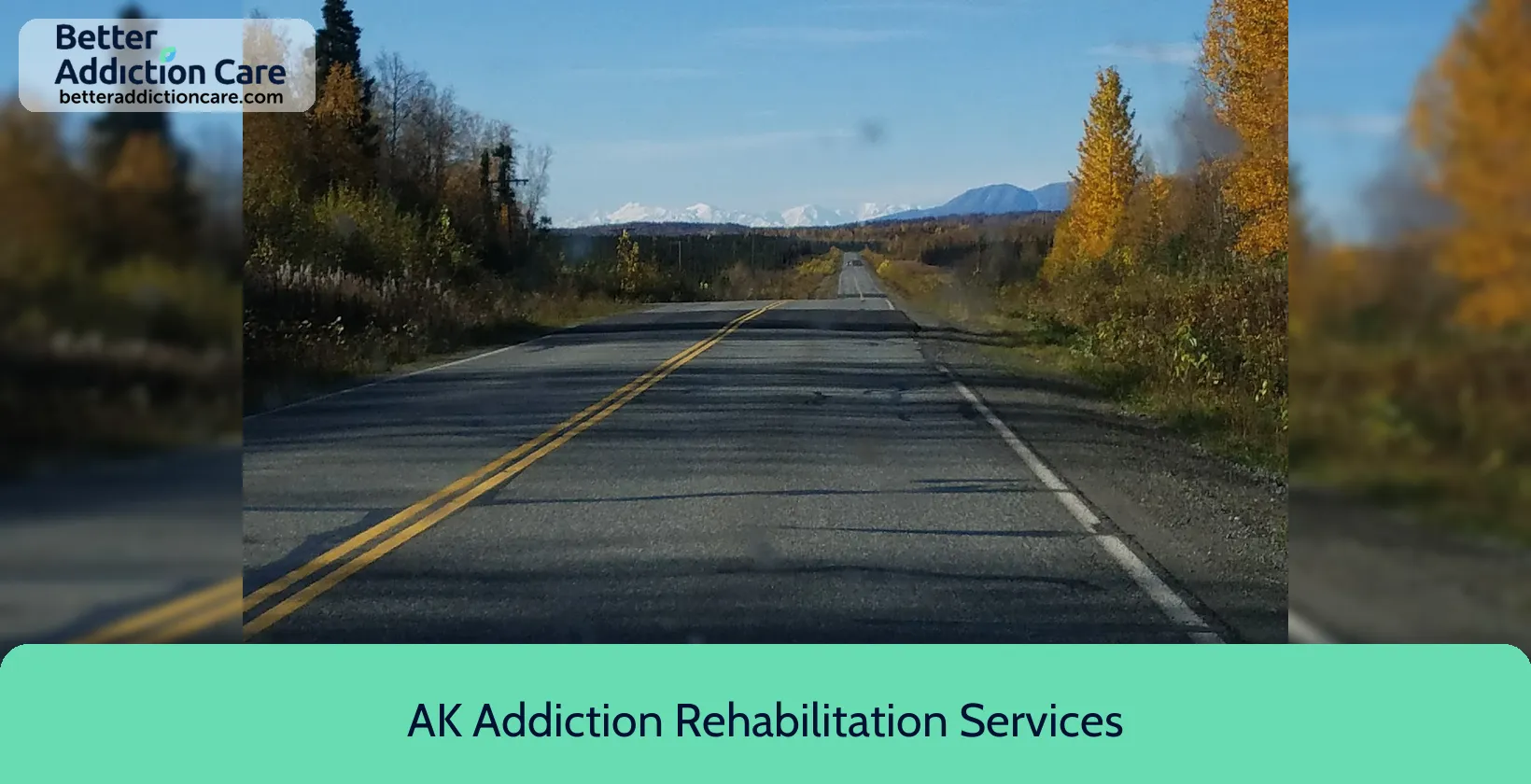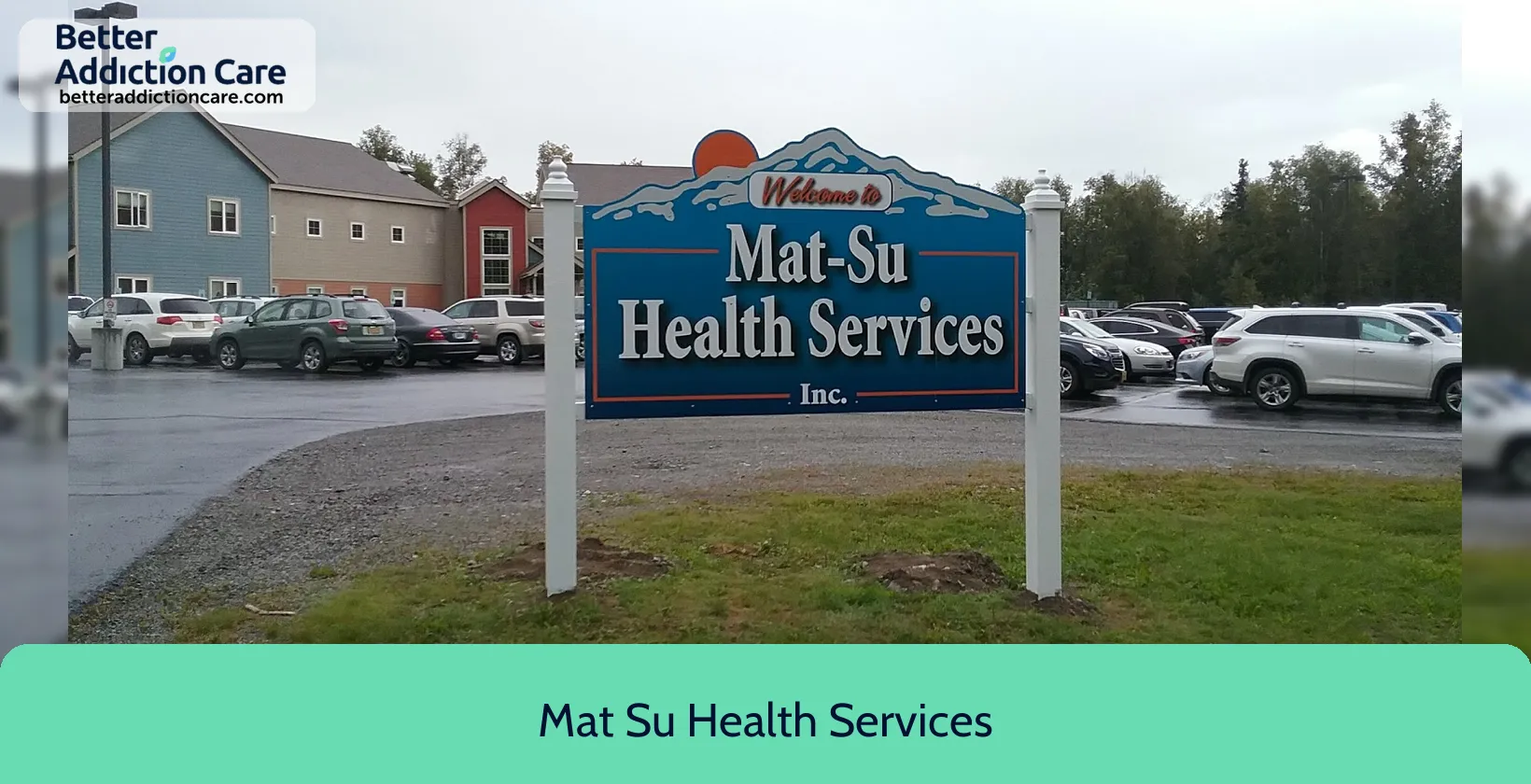Mat Su Health Services
Overview
Mat Su Health Services is a mental health treatment center for people seeking treatment near Matanuska Susitna County. As part of their treatment modalities for recovery, Mat Su Health Services provides couples/family therapy, group counseling, and cognitive behavioral therapy during treatment. Mat Su Health Services is located in Wasilla, Alaska, accepting cash or self-payment for treatment.
Mat Su Health Services at a Glance
Payment Options
- Cash or self-payment
- Medicaid
- Medicare
- State-financed health insurance plan other than Medicaid
- Private health insurance
Assessments
- Screening for tobacco use
- Comprehensive mental health assessment
- Comprehensive substance use assessment
Age Groups
- Young adults
- Children/adolescents
- Adults
- Seniors
Ancillary Services
- Intensive case management
- Case management service
- Chronic disease/illness management
- Court-ordered outpatient treatment
- Diet and exercise counseling
Highlights About Mat Su Health Services
6.77/10
With an overall rating of 6.77/10, this facility has following balanced range of services. Alcohol Rehabilitation: 8.00/10, Drug Rehab and Detox: 6.00/10, Insurance and Payments: 6.00/10, Treatment Options: 7.09/10.-
Alcohol Rehabilitation 8.00
-
Treatment Options 7.09
-
Drug Rehab and Detox 6.00
-
Insurance and Payments 6.00
Accreditations
Federally Qualified Health Center:
Federally Qualified Health Center (FQHC) accreditation is a process of evaluation and recognition by the federal government for community health centers that provide comprehensive and accessible healthcare services to underserved populations. FQHC accreditation is essential for centers to receive federal funding and to ensure that they meet standards for quality, patient-centered care.
Treatment At Mat Su Health Services
Treatment Conditions
- Alcoholism
- Mental health treatment
- Substance use treatment
- Co-occurring Disorders
Care Levels
- Outpatient
Treatment Modalities
- Couples/family therapy
- Group counseling
- Cognitive behavioral therapy
- Dialectical behavior therapy
- Integrated Mental and Substance Use Disorder treatment
Ancillary Services
Languages
- Sign language services for the deaf and hard of hearing
Additional Services
- Pharmacotherapies administered during treatment
- STD testing
Special Programs
- Clients with co-occurring mental and substance use disorders
- Clients who have experienced trauma
- Children/adolescents with serious emotional disturbance (SED)
- Persons with post-traumatic stress disorder (PTSD)
- Persons with traumatic brain injury (TBI)
Get Help Now
Common Questions About Mat Su Health Services
Contact Information
Other Facilities in Wasilla

6.65

6.68

6.80

7.12

7.14

6.96
DISCLAIMER: The facility name, logo and brand are the property and registered trademarks of AK Addiction Rehabilitation Services, and are being used for identification and informational purposes only. Use of these names, logos and brands shall not imply endorsement. BetterAddictionCare.com is not affiliated with or sponsored by AK Addiction Rehabilitation Services.

